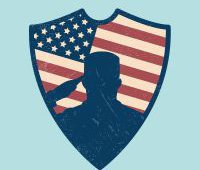Some specifics of sports-related concussions (11/21/19 newsletter)
We are pleased to have Carleton College students and alumni interning with Concussion Alliance. Intern contributors this week:
Editor: Galen Moller
Contributors: Conor Gormally and Galen Moller
Do you find the Weekly Concussion Update helpful? If so, forward this to a friend and suggest they subscribe.
Education
Return to Learn Washington seeks high schools for their study on supporting students with concussion
In our 11/7/19 newsletter, we highlighted how a grant from the CDC would allow the Return to Learn Washington study to expand its pilot program and study its implementation and outcomes in more schools. The study is currently recruiting Washington public high schools that have 50 or more students and no formal Return to Learn protocols. Schools that wish to apply should fill out this online survey. There is a financial incentive for participation, and school officials will receive coaching in implementing the program. The study is led by Dr. Vavilala, Director of Harborview Medical Center’s Injury Prevention and Research Center.
Sports
Cannabis
A neurologist’s stance on marijuana
In an interview with NeurologyLive, Jessica Robinson-Papp, MD, MS, professor of neurology at the Icahn School of Medicine, describes the complicated relationship neurologists have with marijuana as a treatment. She says one of the main challenges is that most state marijuana laws don’t allow doctors to write an actual prescription for the product. Doctors are uncomfortable with this because they cannot specify what kind of marijuana patients use, how much, or how frequently they use it; they can only give access to the product. Since products vary from state to state, the efficacy of different kinds of marijuana is not well-understood.
Marijuana is currently classified as a Schedule I controlled substance, meaning it is “a substance for which there is no accepted medical indication, and that has highly addictive properties.” Since it is not considered a medical treatment, it is also not covered by insurance. To improve this situation, Dr. Robinson-Papp says better research needs to be done so we can understand the potential medical benefits of marijuana. Both she and the American Academy of Neurology say that as neurologists and medical providers and researchers, they support moving marijuana to a lower schedule of controlled substance classification so it can be researched thoroughly.
Diagnostics
After a concussion, athletes may struggle to walk normally while completing other tasks
In an international collaboration published by the British Journal of Sports Medicine, Fionn Büttner et al. carried out a systematic review of 26 studies to determine if individuals with a sports-related concussion (SRC) would show walking and balance impairments when completing a dual-task assessment. These assessments evaluate subjects’ abilities to perform two tasks simultaneously (in this case, walking or balancing while performing a cognitive task, such as spelling a word backward). In an interview with the Irish Times, Büttner says they hypothesized that walking during dual-task assessments would become more challenging after an SRC, “due to a limited capacity to distribute attention across two simultaneous tasks.”
This hypothesis was supported by their review, which found that during dual-task assessments, subjects “walked more slowly and with greater side-to-side instability compared to non-concussed individuals up to two months following SRC.” Subjects did not show these deficits during single-task assessments, where they only had to walk. Büttner emphasized that differences between concussed and non-concussed subjects should be “interpreted cautiously.” He says their study analyzed only laboratory-oriented outcomes, without any follow-up regarding how walking impairments affect how patients live their lives. There was also a high risk of bias in the studies they used, which can reduce the strength of their findings. Nonetheless, Büttner believes that in the future, dual-task assessments could be used to identify sensorimotor impairments that only show up in situations that require multiple demanding tasks to be done simultaneously (such as sporting events).
Therapies
Personal resilience app offers daily concussion recovery games for free
SuperBetter, an app designed to help people build personal resilience through gameplay, is currently offering their Concussion Power Packs for free. The Power Packs are daily activities that can be played in the app and guide users through their recovery with power-ups, bad guys, and quests. They were developed for a clinical trial examining the impact of using the app in addition to standard medical care for teenagers who had concussion symptoms three or more weeks after their injury. For more information, see our blog post about the SuperBetter Concussion Power Packs.
Veterans
Veteran finds help for migraines through the VA Polytrauma System of Care
A blog post from the Department of Veterans Affairs shares how a veteran found help for the symptoms of his TBI. After Dameion Ganesh, a Marine Corps Veteran, was hit by a blast from an improvised explosive device, he started getting persistent, increasingly intense migraines. He was eventually diagnosed with a TBI and referred to the VA North Texas Polytrauma/TBI team. There, they designed and implemented an individual treatment plan for him. He says the quality of care he’s received has been “amazing,” and encourages other veterans to take advantage of the services available to them.
The VA has a national Polytrauma/TBI System of Care throughout the United States and provides state-of-the-art TBI diagnosis and rehabilitation. Their website includes a map of the different locations and types of polytrauma facilities. For help over the phone, call the VA Polytrauma/TBI National Coordinator at (804) 675-5597, or call Polytrauma Assistance at (888) 827-4824. See our Veterans page for additional types of assistance for military service members and veterans.
Mental Health
Findings from the Football Players Health Study
Harvard researchers Andrea L. Roberts et al. surveyed 3,506 former NFL players to see how the position and length of time they played with the NFL and their experiences with concussions related to their long-term mental health. In a news release from Harvard Medical School, Dr. Roberts commented that their results “confirm what some have suspected—a consistently and persistently elevated risk for men who play [professional football] longer and who play in certain positions.” They found that every five seasons of play was associated with a nine percent increased risk of indicators of depression and a 20 percent increase in risk for serious cognitive problems.
The number of concussion symptoms, which was highest among running backs, linebackers, and special teams, was also strongly associated with long-term neuropsychiatric issues. Compared to players who reported the fewest concussion symptoms, players who reported the most concussion symptoms had a “22-fold risk of reporting serious long-term cognition-related problems and six times the risk of having depression and anxiety symptoms.” These symptoms “persisted over time, as long as 20 years following injury.” The study was published in The American Journal of Sports Medicine.
Statistics
Homelessness associated with risk of readmission to hospital for TBI
A California-based study by Nicole Rosendale et al. found that among patients who were hospitalized for neurologic conditions, homelessness was an independent risk factor for hospital readmission within 30 days—especially if patients were admitted for seizures or TBI. The researchers also found that the proportion of homeless patients admitted for TBI was three times that of the total study population (31.9% vs. 9.2%), and that alcoholism was another major factor in readmission following a TBI. The study is only a first step towards improving hospitals’ and policymakers’ abilities to support homeless patients, who often have only basic Medicaid or are uninsured. However, it sets an important precedent by identifying insufficiencies in current practices that lead to readmission for high-risk patients. The study was published in Neurology.
Women's Health
Culture
All proceeds from Bon Jovi’s new song will go to a veteran service dog organization
Earlier this month, Bon Jovi released his new song, “Unbroken,” which he wrote for “To Be of Service,” a documentary about the relationship between service dogs and veterans. According to USA Today, 100 percent of the song’s net proceeds will go to the Patriotic Service Dog Foundation over the next twelve months. The foundation pairs service dogs with veterans who would benefit from “long-term mental and physical assistance” due to PTSD, TBI, or other conditions. “Unbroken” can be downloaded on iTunes, Google Play, and Amazon Music, and “To Be of Service” is now available on Netflix.
Executive Editor
Concussion Alliance co-founder Malayka Gormally



























